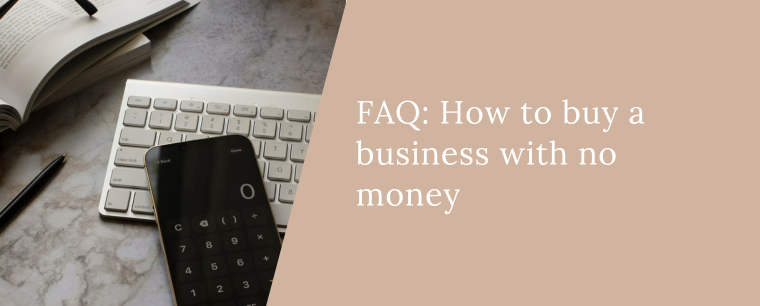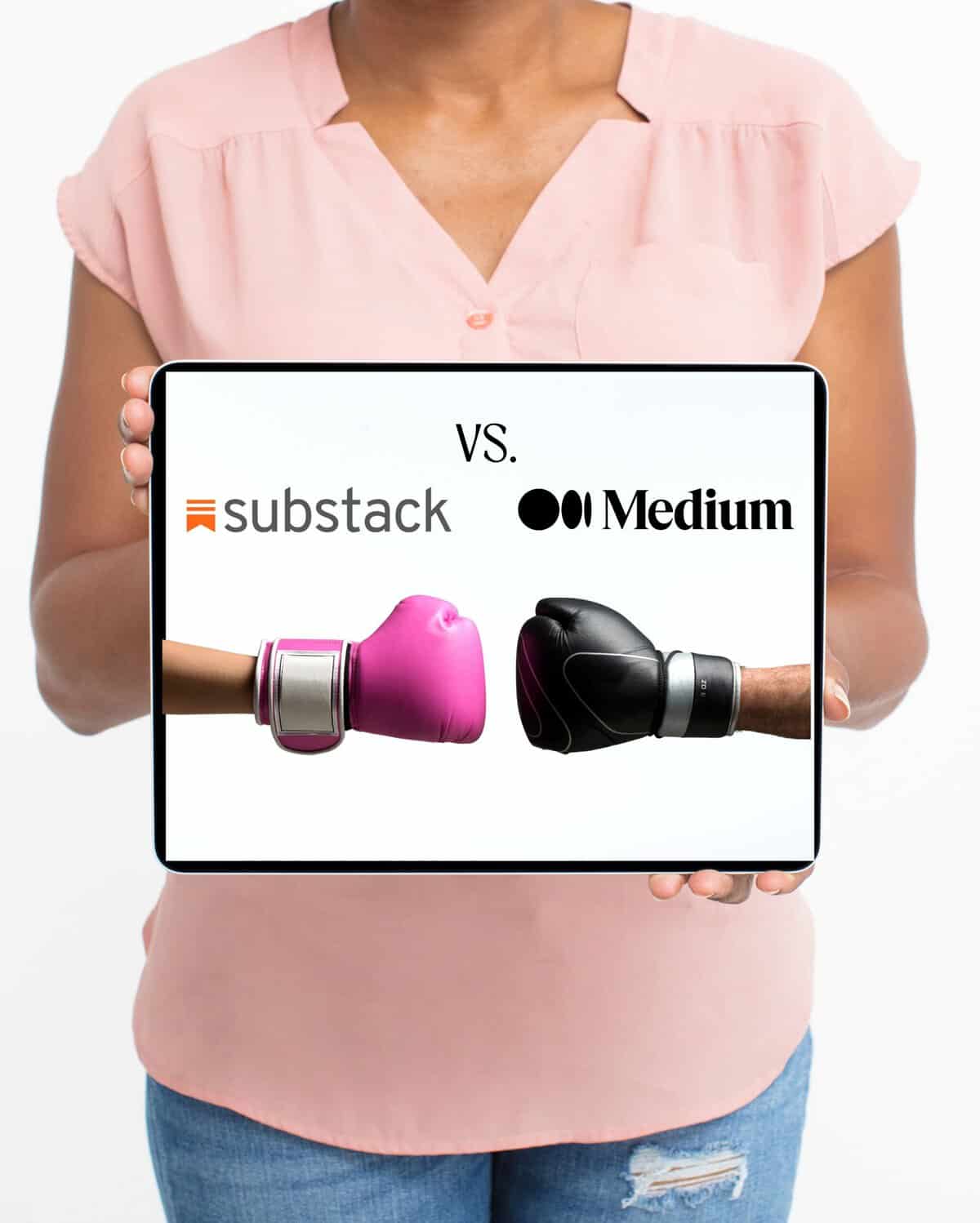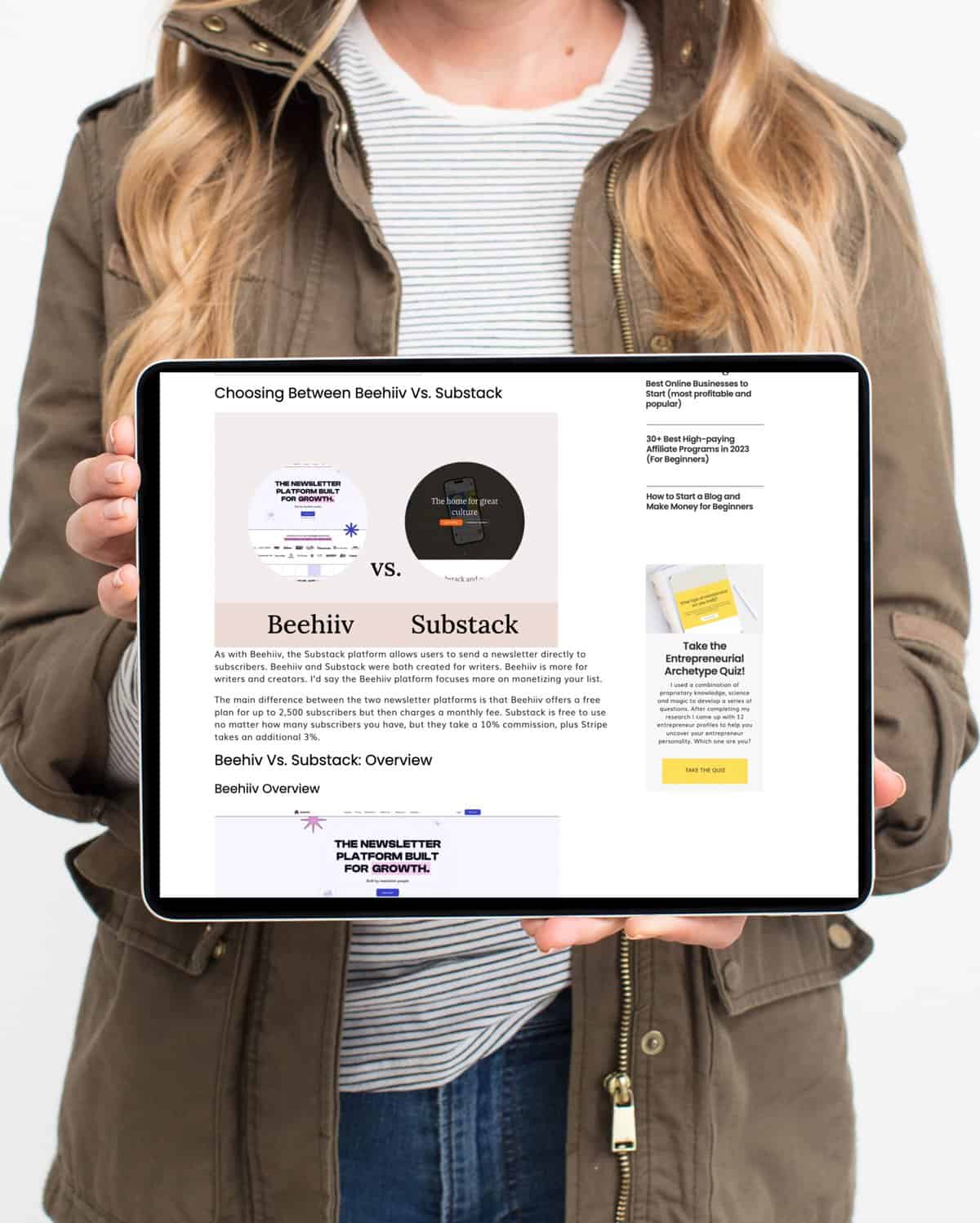This page may contain affiliate links. Please read my disclosure for more information.
Have you ever dreamed of owning your own business but held back because you thought you needed a lot of money upfront? The idea that you need a huge bank account to buy a business is a myth. In this guide, we’ll dive deep into “how to buy a business with no money,” exploring choices for financing like seller financing, leveraging existing businesses, and understanding the role of business brokers. Whether looking at an online business or a local brick-and-mortar, there are ways to make your entrepreneurial dream come true without breaking the bank.
When getting into the business world, it’s essential to understand the lingo. For example, buying an already established business is called a business acquisition. Buying a business with no money means acquiring an already established company without investing a significant amount of personal capital upfront. And lastly, a “leveraged buyout” is a strategy using borrowed funds to purchase a business.
There are several reasons why a motivated seller might sell a successful existing business. There are many reasons that can drive this decision. Some small business owners approach retirement and look for a graceful exit. Others might face health challenges that make daily operations tough. And sometimes, if the business isn’t performing up to its potential, owners might decide it’s time to move on. In scenarios like this, buying an existing business can be more advantageous than starting from scratch, as you can leverage the foundation they’ve already set.
Find the Right Seller

Finding the right seller is one of the most important steps in buying a business with no money. If you’re interested in becoming an entrepreneur without spending more money than you have to, you must spend the time to identify owners interested in exiting their business. Here are some tips to find those sellers:
1. Contact Business Brokers
They often have a list of businesses for sale and insights into the mindset of current owners.
2. Network in Local Business Communities
Sometimes, word of mouth reveals sellers not listed on public platforms.
3. Look for signs from business owners
Look for businesses showing reduced hours or reduced stock. This might hint that an owner is losing money or contemplating a sale.
Another strategy is to hunt for underperforming small businesses. These can often be bought for a lower price, allowing you to use your skills to turn them around. Remember, an underperforming business doesn’t mean it lacks potential. It might need a fresh perspective, a new strategy, or more attention.
Acquiring such a business not only comes with financial advantages but also provides an opportunity to breathe new life into an existing establishment. It can be easier than starting new businesses, and the rewards, both in terms of satisfaction and potential profit, can be huge.
Seller Financing

Seller financing, often called “owner financing,” has become a popular way to buy a business with no money, especially when traditional financing options fall short. But what is it exactly? Seller financing is when the business owner acts as the bank, allowing the buyer to pay for the business over time instead of all at once. Instead of taking a large lump sum upfront, the seller gets payments, usually with interest, over an identified period.
So, what makes seller financing stand out from other financing options? The primary difference is that, with owner financing, you deal directly with the business owner rather than a bank or financial institution. This often leads to more flexible terms, as both parties can negotiate the down payment, interest rates, and payment schedule. It’s a win-win: sellers can often get a higher purchase price, while buyers might not need to undergo rigorous bank credit checks or provide significant amounts of collateral.
The beauty of seller financing also lies in the power of negotiation. Both the purchase price and interest rate can be negotiated. For instance, if a buyer can’t afford a high down payment, they might offer a higher interest rate as a compromise. Conversely, if a buyer can make a larger down payment, they might negotiate for a lower interest rate. This flexibility can make acquiring a business more accessible and affordable.
Financing Options

Navigating the world of business financing can be daunting, but knowing your options can make all the difference. There are a lot of financing options out there. Whether through crowdfunding, traditional loans, or venture capitalists, there’s likely a solution that fits your business needs.
Business Loans
Traditional business loans from banks are a common go-to. They can offer sizable amounts but often require a detailed business plan and a good credit history. If you’re looking at smaller scales, consider small business loans. A business loan is tailored to fit the needs of budding entrepreneurs and usually comes with friendlier terms. But venture capitalists might be the answer if you’re dreaming big and need more significant backing. They offer larger sums in exchange for equity in your business. With their investment, you also gain access to their business expertise and network, which can be invaluable for growth.
Secondary Sources of Financing
Beyond a bank business loan, there are alternative funding options to consider. These can be in the form of private lenders, friends, or family. Some business buyers tap into their own assets, like using a home as collateral or dipping into retirement funds. While these can provide quick access to cash, they also come with their own set of risks.
Crowdfunding
Once limited to tech gadgets and indie films, crowdfunding has become a powerful tool for aspiring business owners. Platforms like Kickstarter or Indiegogo allow you to present your business vision to the public. People who believe in your idea can pledge money to help you achieve it. It’s not just about collecting funds; it’s also a great way to gauge interest in your business venture.
Partnerships and Investments

Stepping into the business world often requires more than just a vision; it demands resources. That’s where partnerships and creative investment strategies come into play. They provide alternatives to the traditional cash-for-business model, enabling many to pursue their entrepreneurial dreams against financial odds.
- Silent Partner
A silent partner will invest in your business without getting into the day-to-day operations. That’s the beauty of a silent partner. They bring in the capital, perhaps from their own bank account or other assets, and in return, they get a share of the profits. It’s a way for a passive investor to infuse cash into your business venture without diluting your control over daily decisions.
- Trading Sweat Equity for Better Terms
Money isn’t the only currency in the business world; sometimes, your skills and time (sweat equity) can be just as valuable. Let’s say you’re short on cash upfront. You can negotiate with a seller or investor to reduce the initial payment by offering your labor or a reduced salary. Whether it’s by managing an underperforming business back to its feet or leveraging your unique skills, your effort can translate to value. In that situation, it’s common to offer higher interest rates or higher payments in the long run, balancing out the reduced money beforehand.
Business Brokers
Business brokers are there to guide you when buying a business. They give professional advice, simplify the process, provide valuable insights, and can often be the difference between finding a good deal and missing out.
Think of them as the bridge between sellers and potential business buyers. They know the market and the available businesses for sale and understand the ins and outs of each one. Their expertise streamlines the process and helps buyers get matched with businesses that suit their budget, passion, and skill set.
To find a reputable one, check their credentials and memberships in professional associations. Personal recommendations can also be golden. Talking to previous clients or other business buyers who’ve used their services can provide insights into their reliability and professionalism.
While it’s tempting to buy a business by yourself, there are many benefits to having a business broker by your side. They can provide access to a wider range of local businesses and small businesses, many of which you might not find on public listings. They also assist in purchase negotiations, ensuring you get a fair deal. Plus, with their understanding of the market, they can often advise on the actual value of a business, preventing you from overpaying.
Evaluating a Business Before Purchase

Purchasing your own business isn’t something to rush into. Take your time, do your research, and ensure you’re investing in a business that aligns with your goals and offers genuine potential for growth and profitability. Here’s how to ensure you’re making a sound investment:
1. Due Diligence is Key
Before putting your own money or someone else’s on the line, due diligence is a must. It’s the process of thoroughly investigating and evaluating all aspects of the business. This means looking at everything from its current owner, operating costs, and customer base to its reputation in the market. The more you know, the better equipped you’ll be to make a decision.
2. Digging into the Finances
A business might look great on the surface, but its financial statements reveal its true health. These documents, which include income statements, balance sheets, and cash flow statements, give you a glimpse into its profitability and stability. Another crucial area to examine is the accounts receivable. This tells you how much money is owed to the business and can be an indicator of its cash flow and client relationships.
3. Spotting a Good Deal
Recognizing a good deal is a blend of art and science. It’s not just about the price; it’s about value. A business might be priced low due to underperformance, but with growth potential, it could be a steal. On the other hand, a high-priced business with declining clientele might be a money pit. Balancing the business’s price against its potential and current performance is crucial.
Online Business

Buying an online business has its perks. It can often mean reduced operating costs, as there’s no physical storefront to maintain or rent. Plus, with an online business, your customer base is not limited by your geography. You can sell globally. An online business is more flexible. You can run your business from the comfort of your home, a coffee shop, or a beach halfway around the world.
At a glance, online and traditional businesses might seem worlds apart, but they share core principles. Both require a clear business model, a target audience, and a strategy to meet consumer needs.
However, it may be easier to scale an online business quickly. With digital platforms, expanding your reach or diversifying your products can be quicker and less capital-intensive than with brick-and-mortar setups. Yet, they also come with their challenges, like navigating the ever-evolving landscape of digital marketing and ensuring your website stays secure.
Cash Flow
In any income-generating business, cash flow isn’t just important—it’s crucial. It represents the money coming in from sales or services and the money going out for expenses. Think of it as the business’s blood circulation; without a healthy flow, the business can become stagnant or even collapse.
Making sure you have enough money isn’t just about profits. It’s about ensuring that there is enough on hand to cover operating costs, pay salaries, and handle other business expenses. It’s the difference between having a thriving business and just scraping by.
For instance, you might have significant accounts receivable, indicating clients owe you money. But if they don’t pay on time, your own cash- flow can be affected, making it more challenging to cover immediate expenses.
Tips and Strategies for Negotiation

Buying a business often involves negotiation. Negotiation is a blend of art and science where both parties feel they’ve won. Here’s how to confidently negotiate purchasing an existing business:
Find Common Ground
Effective negotiation isn’t about overpowering the other party but finding common ground. Active listening is key. By genuinely understanding the seller’s perspective, you can create proposals that address both parties’ concerns. Additionally, always be prepared. Know the business’s value, strengths, and weaknesses, and be ready to back your points with data.
Payment Terms/Interest Rates
A critical component in buying a business revolves around business price, payment terms, and interest rates. When discussing purchase price, consider negotiating flexible payment terms, especially if you’re considering options like owner or seller financing.
If a down payment is involved, determine its size and the subsequent installment periods. As for interest rates, they’re a double-edged sword. While you’d prefer lower rates, offering a slightly higher interest rate might sweeten the deal for the seller, especially if you’re buying a business with no money down.
Challenges to Watch Out For

There’s an allure of buying businesses with no money, but it’s not without its complications. For starters, potential sellers might be skeptical. Most sellers prefer some money beforehand, fearing that the deal might fall through or payments might lag. Another challenge for potential buyers is the higher interest rate often tied to such agreements. Sellers, taking a risk, might ask for heftier rates to compensate. Lastly, the due diligence process can be more stringent, as both parties want a good deal.
To overcome skepticism, present a strong business plan showing how the business will generate income, ensuring the seller of your commitment. For the dreaded high-interest rates, consider negotiating other terms to your advantage, such as a longer repayment period or offering some form of collateral. And when it comes to due diligence, be transparent. The more the seller knows about your intentions and financial standing, the smoother the process.
Conclusion
Buying a business with no money offers both challenges and opportunities. With the right strategies, knowledge, and determination, acquiring an existing business can be easier than you think.
FAQ: How to buy a business with no money

Q1: Is it possible to buy a business without any money upfront?
Yes, it is possible, primarily through options like seller financing, where the seller agrees to be paid over time, or by partnering with silent investors who contribute capital.
Q2: What are the benefits of buying an existing business over starting a new one?
Buying an existing business often means acquiring an established customer base, existing cash flow, and a proven business model, reducing the risk compared to starting from scratch.
Q3: What is seller financing?
Seller financing involves the business owner acting as the bank. Instead of paying the total purchase price upfront, the buyer pays in installments over time, usually with interest.
Q4: Why would a business primary owner sell their business without receiving money in advance?
Various reasons can motivate a sale: approaching retirement age, health issues, or wanting to move on to other ventures. Seller financing can make the business more attractive to a wider range of buyers.
Q5: Are there risks involved in buying a business with no money down?
Yes, there can be higher interest rates, stringent payment terms, and the need for rigorous due diligence to ensure the business is as valuable as presented. It’s essential to be well-informed and prepared.







+ show Comments
- Hide Comments
add a comment